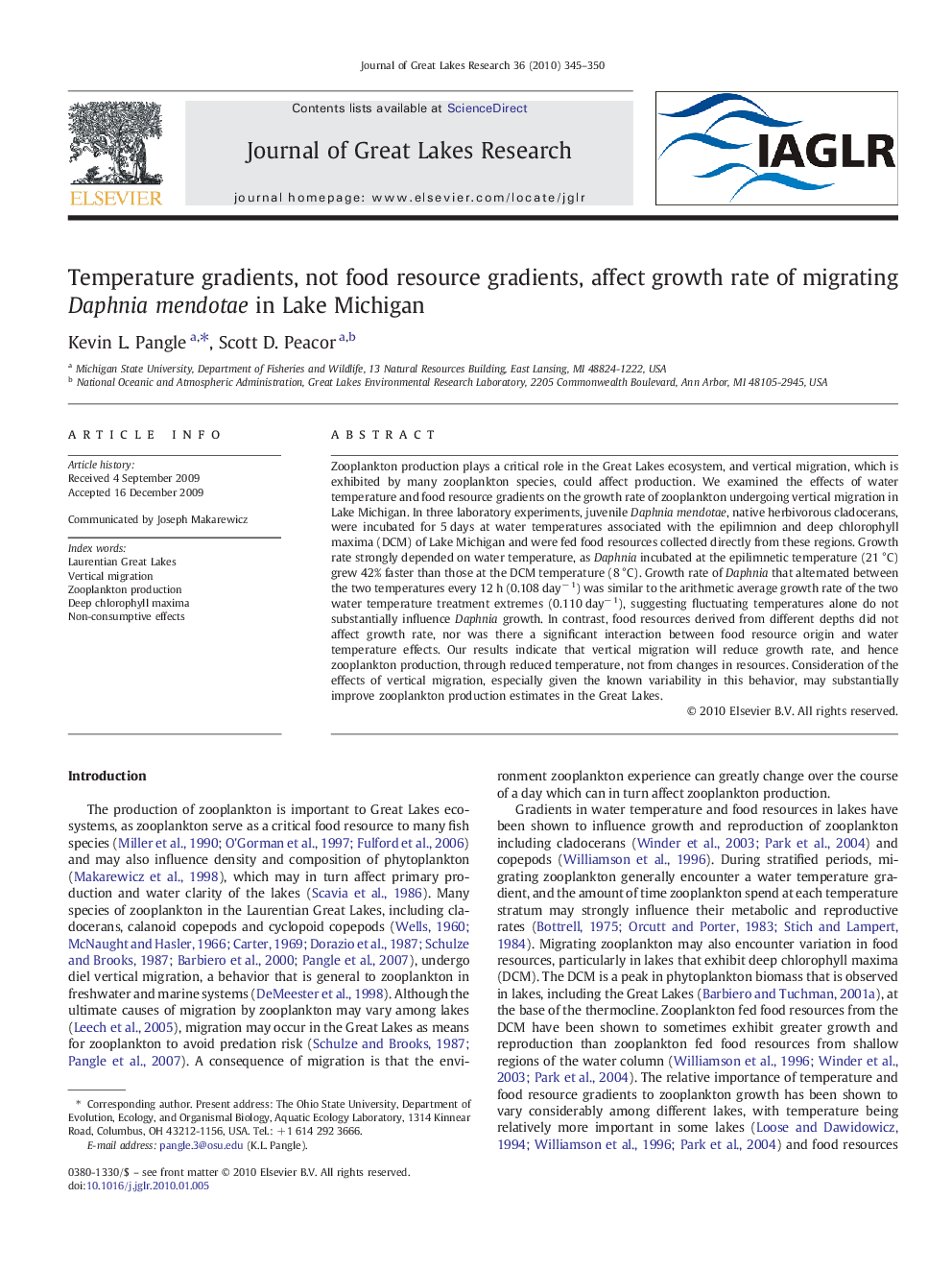| Article ID | Journal | Published Year | Pages | File Type |
|---|---|---|---|---|
| 4399206 | Journal of Great Lakes Research | 2010 | 6 Pages |
Abstract
Zooplankton production plays a critical role in the Great Lakes ecosystem, and vertical migration, which is exhibited by many zooplankton species, could affect production. We examined the effects of water temperature and food resource gradients on the growth rate of zooplankton undergoing vertical migration in Lake Michigan. In three laboratory experiments, juvenile Daphnia mendotae, native herbivorous cladocerans, were incubated for 5 days at water temperatures associated with the epilimnion and deep chlorophyll maxima (DCM) of Lake Michigan and were fed food resources collected directly from these regions. Growth rate strongly depended on water temperature, as Daphnia incubated at the epilimnetic temperature (21 °C) grew 42% faster than those at the DCM temperature (8 °C). Growth rate of Daphnia that alternated between the two temperatures every 12 h (0.108 dayâ 1) was similar to the arithmetic average growth rate of the two water temperature treatment extremes (0.110 dayâ 1), suggesting fluctuating temperatures alone do not substantially influence Daphnia growth. In contrast, food resources derived from different depths did not affect growth rate, nor was there a significant interaction between food resource origin and water temperature effects. Our results indicate that vertical migration will reduce growth rate, and hence zooplankton production, through reduced temperature, not from changes in resources. Consideration of the effects of vertical migration, especially given the known variability in this behavior, may substantially improve zooplankton production estimates in the Great Lakes.
Related Topics
Physical Sciences and Engineering
Earth and Planetary Sciences
Earth and Planetary Sciences (General)
Authors
Kevin L. Pangle, Scott D. Peacor,
